At some point in Tim’s childhood, he was abducted by aliens and sent on a voyage of knowledge and discovery across the universe. Eventually the aliens realised how pointless this was and, as a failed student, he was returned to Earth and left with a family who brought him up as a human bean. But, the persistent memories of new worlds, dragons and other creatures, continued to knock at his frontal lobe, desperately trying to break out. To avoid making a mess and calm his imagination, Tim began writing as a way to communicate with Earthlings. Fuelled by Chilli and Nachos and a bottle of wine, Tim manages to balance a love of loud rock music and fast cars (preferably red!) with emotional chic flicks, smart leather shoes and a well tailored suit. He has successfully infiltrated the humans and hides behind the façade known as a family. He learns from his children, but is regularly told to stop acting like a child by his wife. Naturally shy and unsociable by nature, he is selective of the human company he keeps, preferring to be around old books, bonsai and art.
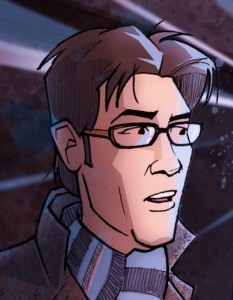
How did you become involved with the subject or theme of your book?
I enjoy watching people and the world around us. The subject of my latest book revolves around the differences between humans. It annoys me how today’s society seems to expect everyone to conform – act the same, look the same and even talk the same. But I think that’s boring. We should celebrate the differences between us and be honest with ourselves about who we are. The New Savants is a book about people who are different. Instead of hiding their differences, they are encouraged to embrace them and use them for the greater good. I think human beings have lost sight of what makes us all special. We are not clones of each other with a single mind.
Why did you choose to write in your particular field or genre? If you write more than one, how do you balance them?
On the whole, I write books for a younger audience. I have written a sci-fi / fantasy series for teens, as well as a humorous detective series for pre-teens. My latest book, The New Savants, is fantasy but set in the real world, and is aimed at young adults. I enjoy writing for young people – their imagination is more open to suggestion and possibility, which gives the author more flexibility to write about something outside of the mundane world. As a writer, I find that working in different genres is fun to do. Every time I go back to a series to write the next one, it’s like visiting it for the first time. That helps to break monotony and gives me more freedom. It’s like any job – you wouldn’t want to do the same thing all the time. Mix it up to keep it fresh.
Where did your love of books/storytelling/reading/writing/etc. come from?
I’ve always read a lot. In fact, I can’t remember not reading. It was just a normal thing to do in my family when I was a child, and that’s carried on into adulthood. It would be unnatural for me not to have something to read. I would rather buy books than anything else – Christmas and birthday lists are usually made up of books. It’s finding room for them all that becomes a problem as I still like a real book to hold rather than an ebook.
When I was at school, I enjoyed writing, but my English teacher wasn’t very encouraging. He didn’t like the style I wrote in. It’s only later in life that I have begun to write again, and that was only in response to my son to give him some ideas of things he could draw.
How long have you been writing?
Properly, as an adult, since 2012.
What kind(s) of writing do you do?
My style of writing is fast-paced but visual. I don’t get bogged down with pages and pages of description. I like to keep the story moving and really take the reader on an adventure.
What cultural value do you see in writing/reading/storytelling/etc.?
Storytelling is ingrained in every culture and civilization. I think it’s a natural thing for us to read something, but it’s in danger of becoming overtaken by the desire for ever-more realistic computer games. If I can get a child to pick up one of my books and read it, hopefully they will be inspired to read something else. Reading is a great way to educate and inspire. It’s good for your soul and well-being.
How does your book relate to your spiritual practice or other life path?
It doesn’t. I write to entertain. I’m not a literary genius, and I won’t win the Nobel Peace Prize, but as long as people enjoy reading my books, that satisfies me. And I enjoy learning. I learn from everything I do. Every book I write, I learn more about writing.
What were your goals and intentions in this book, and how well do you feel you achieved them?
I wanted to write a book that enabled children to identify with characters. I hate to see kids being bullied at school because they’re different, so this book gives them justification to be different, and that it is actually better to be different than the same. You never know, the kids who do the bullying might even be inspired to be different, too.
What are some of the references that you used while researching this book?
I did a lot of research on the Internet about “superhumans” – people who have done something quite extraordinary during their life using the gifts and abilities they were born with.
What do you think most characterizes your writing?
Pure entertainment.
What was the hardest part of writing this book?
In The New Savants, a group of children are brought together, taught how to control their skills and use them for the greater good. Although this is a piece of pure fiction, I wanted everything I wrote to feel like it could be genuine. So, the hardest part of writing this book was making everything as realistic as possible, from the locations I’ve used, the adapted Latin words, and the equipment. This, however, was also the most enjoyable part. It can be frustrating trying to think of new things that sound like they might be real, but when it comes together, you can’t help but feel immensely satisfied.
What did you enjoy most about writing this book?
Creating something totally new and unique. There are so many things in The New Savants that have never been heard of before, or even conceived, but I have written them in such a way that they seem plausible.
Are there vocabulary words or concepts in your book that may be new to readers? Define some of those.
Here’s a few to be going on with:
The Wicks, Wakefield and Lynch Institute for the Gifted – training facility for Savants
Neōdisc – a puzzle that hides a secret
Aliquomus – compass that points to The Institute
Phosy Wax – self-luminating wax
Sicari Masters – inconspicuous warriors
Choc-chip Bessies – tasty pillow-shaped biscuits
The Electroprod – extendable tube that releases an electrical current
Photogenesis panels – liquid polymer material that transfers an image to another location
Are there under-represented groups or ideas featured if your book? If so, discuss them.
The main focus of the book is a group of teenagers who don’t fit in with normal society and feel like they are freaks or social outcasts. This is mainly because they don’t act in what society deems to be a “normal” way. A lot of the people who read this book will be able to identify with the characters. I believe we all have something about ourselves that we can do better than the average person, but most of the time we don’t shout about it, preferring to direct attention away from it or dismiss it as irrelevant or average. For example, I have a great memory for images. I wouldn’t go so far as to say I have a photographic memory, but I can recall images very easily. Is this a skill or a gift? I suppose it is. And with the right training, I could probably improve it even more. It’s certainly useful if you’ve lost something or need to recall something that happened.
Are there misconceptions that people have about your book? If so, explain.
The New Savants has been read by several people already and it has been likened to Harry Potter. Although I wouldn’t deny that I would love some of JK Rowling’s success, I think there is a danger saying that a certain book is “the next Harry Potter.” It is probably an overused term in literary circles – it’s like the holy grail of books. Something everyone would like to reach, but often fall disappointingly short of. There are similarities you can draw between The New Savants and Harry Potter – both books are aimed at teenagers, both follow a character who has an unexpected skill, and both are fantasy worlds set within reality. I think my book is fresh, exciting and has the potential to reach a lot of people who understand the characters.
What inspires you?
Personally, I find so many things fascinating and interesting. What I like to do is take an idea and build a story around it. I often look to history, trivial facts, comics, and films to come up with the seed of an idea. Imagination is a limitless concept, so you can take the most mundane object and make something exceptional happen. Life is inspirational.
How did you get to be where you are in your life today?
Persistence, learning by mistakes, humility, laughter, sensitivity and understanding. Life is a many-branched tree. It’s up to you which direction you go, but if you can put yourself in other people’s shoes, understand why they may act in a certain way, and keep learning, you might get to see the light peeking between the top most branches.
Who are some of your favourite authors that you feel were influential in your work? What impact have they had on your writing?
I have a wide interest in authors, all of which have influenced me as an author, in different ways. George RR Martin taught me to have a distant vision, Phillip Kerr understands the historical placing of a story, Dick Francis showed me the plot of a racy thriller, George MacDonald Fraser taught me humour and the understanding of the human mind. But I also find that the lyrics of songs can have a profound influence on me. Choosing the right word can change the feeling of a sentence massively. The song “If” by Bread always makes me cry – the lyrics are perfectly divine. I also think of films I watched when I was younger to remind me what children enjoy, as well as how to expand the imagination.
What did you find most useful in learning to write? What was least useful or most destructive?
The most useful thing I have learnt about writing is to read your work aloud. It’s surprising how awkward a sentence can sound when you go from reading it in your head, to speaking it. That’s the time to rewrite that sentence. When I think about the most destructive part of writing, I think it’s something all authors suffer from – self-doubt. No one can be more critical of a book than the author. Everyone else is doing better, producing more books, getting those big contracts, using all the best ideas. But they’re not.
Are you a full-time or part-time writer? How does that affect your writing?
I’m a part-time writer who would like to be full-time. When you’re juggling a real world life to earn money, it’s sometimes frustrating having to keep control of your ideas when all you want to do is sit down and write. But there is a flip side to this. Holding on to an idea gives it time to percolate and brew inside your mind, giving you time to think of other alternative scenes and look at your work from a distance.
What are some day jobs that you have held? If any of them impacted your writing, share an example.
I have worked as a catering assistant, a music teacher, barman, sign writer/illustrator, book illustrator, Chiropodist, lecturer, owner of a hair salon, website retailer of face creams, and more recently, a writer and book cover designer. None of them have influenced my writing, but all have influenced me as a person.
For those interested in exploring the subject or theme of your book, where should they start?
Google “Savants” – there are some interesting articles out there. Another, more dramatic, source of inspiration is a TV series by comic book legend Stan Lee – “Stan Lee’s Superhumans” – http://www.history.com/shows/stan-lees-superhumans – where he explores the full potential of humans and what some are capable of.
How do you feel about ebooks vs. print books and alternative vs. conventional publishing?
Ebooks vs. print books – ebooks will win based on convenience, price, accessibility and storage space. But there will always be a place for print books. Personally, I still prefer a real book – it’s a sentimental, nostalgic thing. But I’m equally amazed by technology.
Alternative vs. conventional publishing – I think the rise of self-publication has inspired and encouraged people to write, increased the variety of books that are available and maybe made the industry take a look at itself and reshape the traditional business model. But the public’s perception of self-published books is not totally positive. Because there is no vetting procedure or approval process before a book has been let loose on the public, there is a lack of trust. Why should they waste their time and money on something that hasn’t been tried and tested? Of course, a lot of independently published authors also put a lot of work and their own money into professional editing and cover art that levels the playing field somewhat, but there is just an overwhelming sea of books available that makes it harder to find the gems.
What do you think is the future of reading/writing?
I think it will certainly keep moving towards ebooks, and I believe they will become much more of an interactive experience that doesn’t just stop with the book. They will connect the readers more to the author.
What process did you go through to get your book published?
My first book – it was as simple as pressing the ENTER key on the computer. Was it the best I could do? At the time, I thought it was, and all those agents that sent the standard rejection letter didn’t know what they were missing. But they did know what they had rejected. It wasn’t my best work. I look back at it now, and there is a taint of embarrassment linked with it. The important thing is that I have learnt from it, developed my skills, and improved. I understand stories better now and feel that I have grown as a writer. I’m always going to be learning and always want to get better. I still self-publish because it gives me more flexibility and control without the pressure of deadlines. I invest a lot of my own money into each book I produce because I want to release something that I am proud of.
What makes your book stand out from the crowd?
Pure wonder and imagination. It’s a privilege to guide a child on a journey into their imagination that’s not on a TV screen or in a computer game, but in their head. It’s often been said that my stories are very visual. Once you provide a child with visual clues, their imagination will fill in the blanks. That way they become part of the story.
How do you find or make time to write?
Turn the telly off!
Do you write more by logic or intuition, or some combination of the two? Summarize your writing process.
Both. I think there has to be logic in a story, otherwise the reader won’t bother going on the ride with you. But I like the way a story evolves as I’m writing it. I know what the start and end points will be, but not always how I’m going to get there. As I’m researching an element of my book, I often stumble upon something that sparks something in my brain, which would be rude to ignore. If it makes me feel excited, hopefully it will make the reader feel the same way.
My writing process consists of many different stages – 1. I write a chapter. 2. I read the chapter and make changes. 3. I read aloud that chapter and make changes. 4. I print out the chapter for my twelve-year-old son to read and then listen to his feedback. 5. When I’ve finished the whole book, I print it off and read it, making changes with my favourite red pen. 7. My beta readers read the whole book and give feedback. 6. After that, the editor gets their go at it, which always leads to further alterations and tweaks that they recommend.
What are some ways in which you promote your work? Do you find that these add to or detract from your writing time?
I think anything that does not involve writing, detracts you from writing. Promotion is time consuming, and so far I haven’t found the magic secret that makes a massive difference to sales. But, without promotion, your next book is worthless. It’s something you have to keep doing to try and get your name in front of potential readers. I think a blog or website is always useful as it forms the centre of your online presence, even when different social media sites come and go. My best advice for book promotion is pay someone to act on your behalf. It will save you a lot of time, and like all jobs, they should be done by people who know what they’re doing. You go back and write.
What is your role in the writing community?
I don’t think I have a specific role. I’m just another storyteller.
What do you like to read in your free time?
I read many different genres depending on how I feel at the time. One of the things I enjoy the most is, when I finish reading a book, standing in front of my book shelves and choosing what I will read next. Recent genres that I have read include Fantasy by George R R Martin, Historical Detective Fiction by Philip Kerr and Military Humour by George MacDonald Fraser. At the moment I’m working my way through Dick Francis novels, some of which I read when I was a teenager. They are always entertaining thrillers.
What projects are you working on at the present?
I’m currently writing some short humorous crime stories featuring the hapless detective Lawrence Pinkley. I have written several books featuring Pinkley and they are always fun to do. When I have finished those I will send them to the illustrator I work with on those books, and whilst he is working his magic, I will start writing the second book in The New Savants series. The Pinkley casebook will be out later in 2015, whilst I would expect The New Savants book out early part of 2016.
What do your plans for future projects include?
More New Savants. This is the start of a series. I have lots of adventures and plans for the characters in this book. I will also intersperse writing them with more from detective Lawrence Pinkley. And I intend continuing with a project I started last year called Doctor Gabriel Grey, The Finest Dragon Slayer in Westminster – set in London in the 1600s. I’m enjoying the research surrounding this project, looking at old maps of London, getting the locations, culture and society authentic, whilst adding in some dragons for good luck. I’m sure other things will also crop up during the year, but one thing’s sure, I’ve got so much more planned.
*****
In London lies an underground ghost station—empty and unused. Trains don’t stop there any more, but if you look closely on the tunnel walls, you might just spot a grime covered sign for Brompton Road Station. Tucked away from the hustle of London streets, the station holds a secret—a government training facility for those select few who are… unusual. After eighteen years, the Wicks, Wakefield and Lynch Institute for the Gifted has started recruiting once again!
From an early age, Louis Edwards realized that society couldn’t accept what it was unable to explain. And no one could explain what Louis was able to do. Forced to repress his gift and hide it from others, Louis successfully manages to lead an introverted life until the day he finds an unusual metal puzzle. The key to a training facility for people just like him.
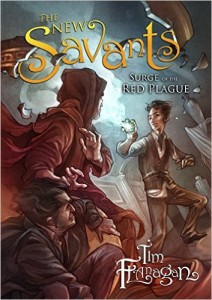
Pre-order your copy today on Kindle
 So what is hot? I can tell you this much—it’s not getting d**k pics sent to me after talking to a guy for one day. What’s hot? A confident man in a suit, who looks like he’s capable of handling any situation. One who knows he’s sexy but doesn’t feel the need to tell everyone about it. Sitting at a table full of people saying, “I know how to make a woman cum eight different ways”…not so hot. But whispering that in my ear right before you actually do it… that’s hot as hell.
So what is hot? I can tell you this much—it’s not getting d**k pics sent to me after talking to a guy for one day. What’s hot? A confident man in a suit, who looks like he’s capable of handling any situation. One who knows he’s sexy but doesn’t feel the need to tell everyone about it. Sitting at a table full of people saying, “I know how to make a woman cum eight different ways”…not so hot. But whispering that in my ear right before you actually do it… that’s hot as hell. Ward? When our sexy Hollywood is chained to a bed by his sweet Mary. Talk about spank bank material… that is hot. But let’s be honest; it wasn’t just the chains, his abs or his ability to barely hang on to what little control he had. Although that really does add to the hot factor, it was an intense moment that had you turning pages all hours of the night. Did it shock me? No. But you better believe it seduced the hell out of me. So, chains? Yeah, I could do chains as long as it’s with Rhage.
Ward? When our sexy Hollywood is chained to a bed by his sweet Mary. Talk about spank bank material… that is hot. But let’s be honest; it wasn’t just the chains, his abs or his ability to barely hang on to what little control he had. Although that really does add to the hot factor, it was an intense moment that had you turning pages all hours of the night. Did it shock me? No. But you better believe it seduced the hell out of me. So, chains? Yeah, I could do chains as long as it’s with Rhage.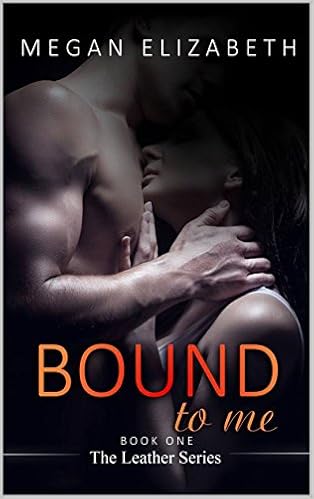 The novel reviewers just can’t get enough of… “Bound To Me” will turn your life around…
The novel reviewers just can’t get enough of… “Bound To Me” will turn your life around…




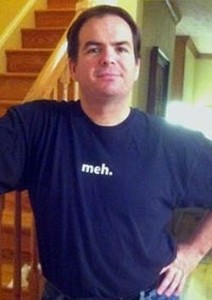
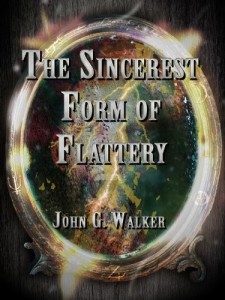
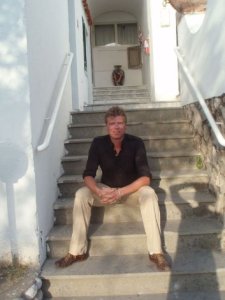
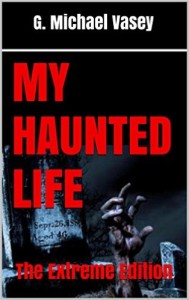
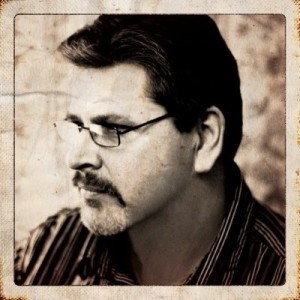
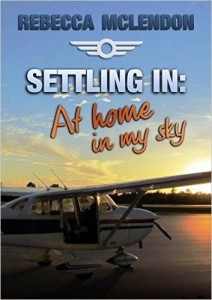
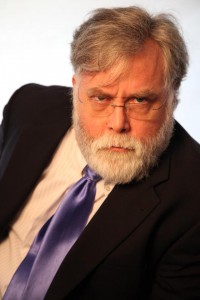
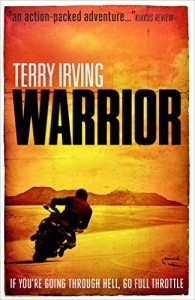
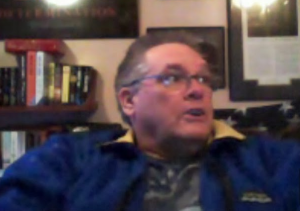
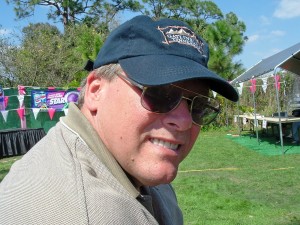
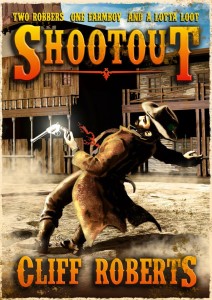
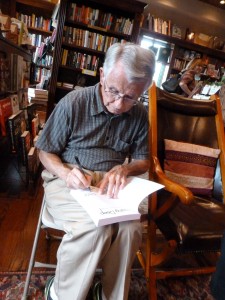
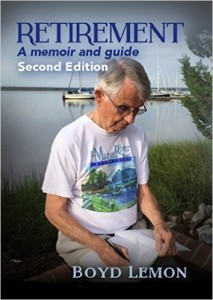
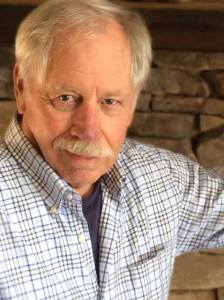
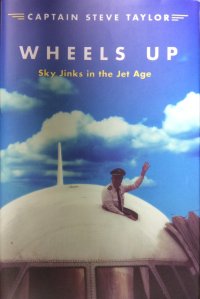
Recent Comments